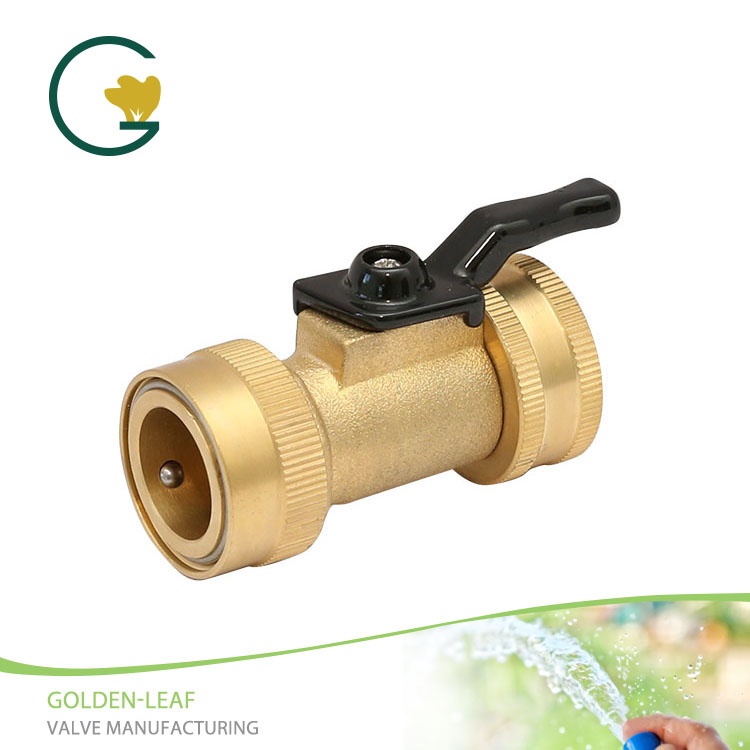A Complete Guide to Brass Garden Hose Fittings
2025-02-07
Garden hoses are essential for watering plants, cleaning outdoor spaces, and various household tasks. However, to maximize their efficiency and longevity, the right hose fittings are crucial. Among the many options available, brass garden hose fittings stand out for their durability, corrosion resistance, and leak-proof performance. In this guide, we will explore the benefits, types, applications, and maintenance tips for brass garden hose fittings.
Why Choose Brass Garden Hose Fittings
Brass is a popular material for garden hose fittings due to its strength, reliability, and resistance to rust and corrosion. Compared to plastic or aluminum fittings, brass fittings provide better water flow, a longer lifespan, and a secure connection, making them ideal for both residential and commercial applications.
Key Benefits of Brass Hose Fittings
1. Durability and Longevity
- Brass fittings are stronger than plastic and more resistant to cracking or breaking.
- They can withstand high water pressure and frequent use without losing their shape.
2. Corrosion and Rust Resistance
- Unlike steel or iron, brass does not rust, making it perfect for outdoor use in various weather conditions.
- It resists mineral buildup, ensuring a consistent water flow.
3. Leak-Proof Performance
- Brass fittings provide a tight, secure seal, preventing leaks and water wastage.
- Their precision threads allow for a snug fit with standard hoses and faucets.
4. High-Temperature Tolerance
- Brass fittings can handle hot and cold water without warping or degrading.
- They are ideal for high-pressure systems and professional irrigation setups.
5. Universal Compatibility
- Most brass fittings are designed to fit standard garden hoses, sprinklers, and nozzles.
- They are available in various sizes and configurations to suit different needs.
Types of Brass Garden Hose Fittings
Brass garden hose fittings come in multiple types to serve different purposes. Here are the most common ones:
1. Hose Connectors
- Standard Hose Connectors: Used to attach the hose to a faucet or nozzle.
- Quick-Connect Fittings: Allow for easy attachment and removal without twisting.
2. Hose Couplings
- Used to extend the length of a garden hose by connecting two hoses together.
- Available in male-to-male, female-to-female, or male-to-female configurations.
3. Hose Adapters
- Enable compatibility between different hose sizes and thread types.
- Common types include threaded adapters, barbed adapters, and pressure regulators.
4. Hose Splitters
- Allow users to connect multiple hoses to a single water source.
- Available in 2-way, 3-way, and 4-way configurations.
5. Hose Repair Fittings
- Used to fix damaged hoses instead of replacing them entirely.
- Includes end menders, splicers, and clamps.
6. Shut-Off Valves
- Allow users to control water flow directly at the hose without turning off the faucet.
- Useful for changing attachments without stopping the water supply.
Applications of Brass Garden Hose Fittings
Brass hose fittings are versatile and used in various outdoor and commercial applications, including:
- Home Gardening and Landscaping
- Connecting hoses to sprinklers, nozzles, or drip irrigation systems.
- Car Washing and Cleaning
- Attaching high-pressure sprayers for effective cleaning.
- Agriculture and Farming
- Irrigation systems for watering crops and livestock.
- Construction and Industrial Use
- Water distribution in job sites and large-scale landscaping projects.
- RV and Marine Applications
- Secure water connections for boats, RVs, and outdoor camping setups.
How to Maintain Brass Garden Hose Fittings
To ensure your brass hose fittings last for years, follow these simple maintenance tips:
1. Regular Cleaning
- Rinse fittings with water after use to remove dirt, debris, or chemicals.
- For deep cleaning, soak in a mixture of vinegar and water to remove mineral buildup.
2. Check for Leaks
- Inspect fittings regularly for wear, cracks, or loose connections.
- Replace damaged washers or use Teflon tape for a better seal.
3. Prevent Freezing in Winter
- Disconnect hoses and fittings before cold weather to avoid freezing and cracking.
- Store fittings indoors when not in use.
4. Avoid Over-Tightening
- Hand-tighten fittings firmly but do not over-tighten, as this can damage threads.
5. Lubricate Threads Periodically
- Apply a small amount of silicone grease to threads for smooth connection and disconnection.
Conclusion
Brass garden hose fittings offer exceptional durability, leak resistance, and versatility, making them the best choice for both home and professional use. Whether you need a reliable hose connector, adapter, or shut-off valve, brass fittings ensure long-lasting performance and efficient water flow. By maintaining them properly, you can enjoy years of hassle-free gardening and outdoor tasks.



